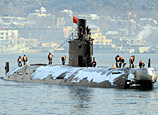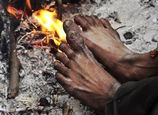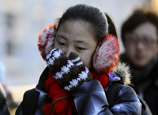
Yang Xin, a professor with Fudan University's department of environmental science and engineering who specializes in atmospheric particulates, said seasonal influences explain the record-breaking data in both Beijing and Shanghai.
"Take Shanghai as an example. It just celebrated its cleanest summer in 2012 - sea breeze from the southeast is helpful in diluting pollutants in the air. However, the monsoons coming from the northwest in the winter usually bring dirty air from the north," Yang said.
Agricultural straw burning in nearby areas also contributed to part of Shanghai's PM2.5 reading, according to Wang Lin, a researcher at Fudan University's Department of Environmental Science and Engineering.
"But it's hard for the Shanghai government to prohibit farmers in the neighboring regions from doing so," Wang said.
According to Lin, the forecaster, Shanghai's air was set to improve on Wednesday night and early Thursday morning. The next wave of cold air is much cleaner because of the clearing of air pollution in the north.
Control measures
Authorities from the Shanghai Environmental Protection Bureau said measures such as an emergency pollution-reduction plan have been applied to coal-fired power plants and other relevant chemical industries. Construction sites in Shanghai were also asked to take dust-control measures.
But an employee with Baosteel who wouldn't give a name told China Daily that no reduction measure had been applied because "the company already met the city's emission standards".
Meanwhile, Jiangsu province's environmental protection authority also drafted an emergency warning plan for air pollution.
The draft said when air quality index readings of more than half of the province's monitoring stations reached 201 to 300, outdoor activities of its primary school and middle school students would be suspended and students can take a vacation from school when the readings are more than 300.
Outdoor barbecues and fireworks and crackers will be banned in both situations.

















 'Sister House' case urges efforts in combating corruption in affordable housing
'Sister House' case urges efforts in combating corruption in affordable housing


![]()
